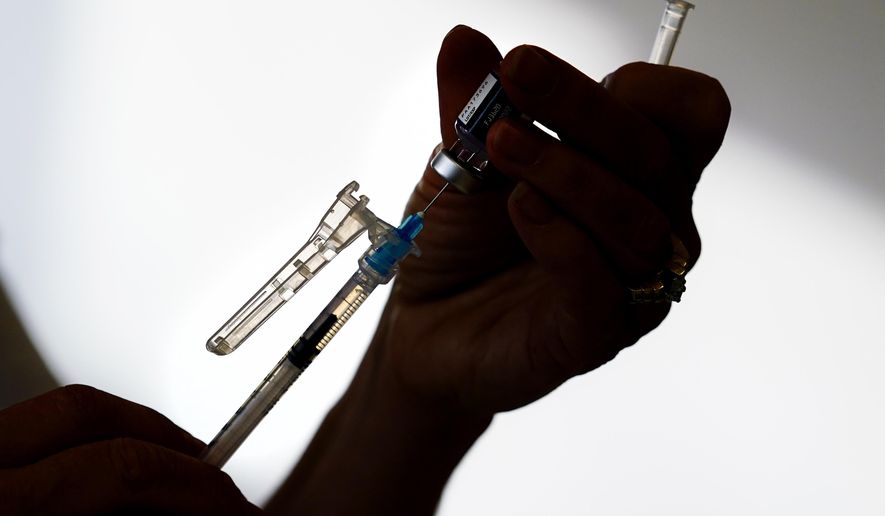OPINION:
What is a vaccine, anyhow, and at what point is the public health community gaslighting us?
Collins Dictionary of Biology defines a vaccine as “a preparation … that is used to stimulate an immune response.” Until about two months ago, Merriam-Webster defined a vaccine as “a preparation … that is administered to produce or artificially increase immunity to a particular disease.”
Last May, no doubt anticipating the emerging clarity that what they were selling were not vaccines, the CDC changed its definition of what a vaccine is to emphasize the stimulation of immune response rather than immunity.
A “vaccine” is commonly understood to be a product that stimulates a person’s immune system to produce immunity to a specific disease. Vaccines prevent one from becoming infected with a disease and prevent the transmission of the disease to others.
I mention all of this only because the recent surge in omicron infections suggests that almost every individual who has received one of the “vaccines” and/or boosters for COVID-19 has the potential of both becoming infected with COVID-19 and, presumably, becoming transmission vectors for the virus.
A significant portion of those now testing positive for the virus has been “vaccinated”; a sizeable fraction has been boosted as well. Moreover, additional millions have contracted omicron in an intensity below what warrants testing.
So, whatever shots we took earlier in the year were not vaccines, at least not as that term is understood by native English speakers everywhere.
Consequently, all of the judging and anger that the “vaccinated” directed at their fellow unvaccinated over the last year was largely pointless and misguided. The simple truth is that we have all been unvaccinated, whether we got the shots or not.
Someone else’s decision to get or not get the shot had no effect at all on the transmission of the disease and whether you or your mom or friend contracted COVID-19. We have been dealing with a highly contagious respiratory affliction that will eventually infect everyone. The shots changed none of that.
The shots are excellent preventive therapeutics, preparing the host body to survive if it is infected. Death and hospitalization rates are pretty clear: Those who have taken the shots have had much better outcomes on average.
But the shots are just one set of therapeutics. Others have become, inexplicably, controversial. Without a true vaccine, it is not clear why anyone other than your doctor and your loved ones should care about what course of therapy you choose for any medical condition. It affects other people only in the same way that obesity, smoking, lack of exercise, inconsistent brushing of teeth, etc., affect other potential patients: Lifestyle choices sometimes place burdens on the system that are carried by all of us.
That hardly justifies the amount of propaganda and vitriol that has been directed at those who have preferred to avoid the preventive therapy of the shots.
The most troubling aspect of the non-vaccines is, of course, that for a year now and up until today, the medical and public health communities continue to describe the shots as vaccines, even though they are not.
By refusing to describe the shots correctly as preventive therapies ab initio, the medical and public health communities, intentionally or otherwise, engaged in rank politicization of medical care, lied and continued to lie to citizens and patients, guaranteed social friction, and destroyed their own credibility.
Former President Donald Trump is rightly proud of his efforts to scale up personal protective equipment production and develop the shots. President Biden has done well at encouraging people to take the shots, even if under false pretenses. Both did less well at scaling up testing capacity. Both also failed to keep a close check on the “experts,” especially regarding the value of lockdowns (they caused more harm than good) and allowed them to stray too far from the truth in describing the efficacy and true nature of the shots.
With its credibility in tatters, the public health cadre will be useless to the United States for at least a generation. If it continues to dissemble even now about something as straightforward as what is and is not a vaccine, how will anyone be able to trust them with questions that are less obvious and perhaps more important?
For more information, visit The Washington Times COVID-19 resource page.
• Michael McKenna, a columnist for The Washington Times, is the president of MWR Strategies. He was most recently a deputy assistant to the president and deputy director of the Office of Legislative Affairs at the White House.




Please read our comment policy before commenting.